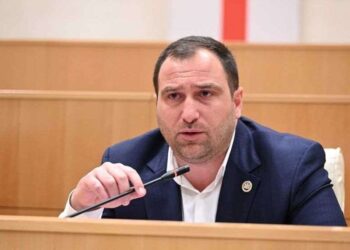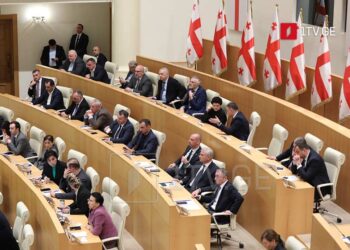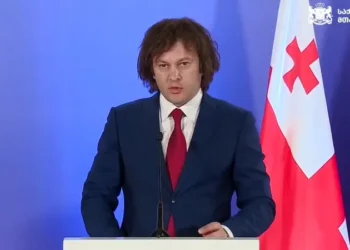In the battle between autocratic nations and democratic institutions, truth is often the first casualty. Sadly, the ones who suffer the most from this are the everyday people, and those living in Georgia’s democracy are seeing competing information sources and blurred lines in the propaganda war.
The modern media landscape has rapidly reduced the gap between government institutions and the public’s access to information. Open source intelligence, more and smaller news outlets, and increased transparency have contributed to a more diverse data pool. While Georgia has recently struggled with transparency at their federal level, it leaps ahead of the infamous shadowy sources in the Kremlin.
However, this blossoming clarity from the government is a useful weapon against the ongoing disinformation campaigns from outside the country. As has been seen by American and European governments, this very transparency can work to undermine the work of Russian efforts. As nations like Russia and China expend massive resources on restricting public access to truth in order to reinforce their own power, Western democracies such as Georgia are able to use openness as an important weapon. This information released to the public has a tendency to be more verifiable, comes ahead of state-created narratives, and can act as a unifying factor for multiple nations.
The ability to independently confirm information released by a transparent government itself works to undermine the veracity of a manufactured story by its opposition. As has been seen by Russia in Ukraine, narratives that are created for propaganda are easily debunked by even the most cursory of searches. This simple ability to verify information at the general public’s level has dug the Kremlin a hole they are unlikely to get out of any time soon.
Despite this, it is not enough for Tbilisi to simply allow its information to be checked by its constituents. The government has to make diligent strides to streamline and digitize access to this data. While some may argue that releasing such a vast trove of information to the open public could undermine national security and trust in institutions, this is not a weakness, but a strength.
Internally, the access to this open source information allows greater trust and a higher level of accountability in government offices. Trust in government is something that is generally at an all-time low across the world. The opportunity to regain some of this trust should never be missed.
Externally, the threat to national security is negated by the reactive nature of an enemy like the Kremlin. Sharing this information forces them to adjust their policies and tactics, which in turn fosters an environment of innovation and adaptability on the Georgian side. While a sort of cat-and-mouse dynamic is created, it fights stagnation, corruption, and restores trust in the defense and security sectors.

For Russia, their entire state security apparatus is built on a decades-long bedrock of secrecy. Even to its own members there is distrust and a furtive nature, something that reportedly has even hampered the entire “special military operation” from the onset. Multiple instances of Russia’s own service members exist of their being either unaware or with an incomplete picture of their invasion of Ukraine.
This, combined with unconfirmed reports that Russian President Vladimir Putin himself was either lied to or misinformed, frames the transparency issue perfectly. The side effects of maintaining a clandestine nature in government information distribution and access poisons the proverbial tree at its root. Even now, six months into the war, Russian information sources are treated by news and analysis outlets with the utmost scrutiny and mistrust.
Of particular note is the way information must be curated for dissemination to the public. Government data must avoid the dangerous attempts made in the past of “cherry picking” information, as this is a ticking time bomb that will undo any efforts to re-establish trust. Having open source information available to the public, put simply, not only builds bridges between the government and its people but also advances Georgia’s domestic and international agenda.
While no government is without its secrets, it is important to navigate this carefully. No diplomat, soldier, intelligence officer, or analyst can operate without some level of confidentiality. However, the rapid pace at which information is becoming more accessible and Western governments are increasing transparency needs to be reckoned with.
The Georgia Government, while certainly with its shortcomings, has less to hide than that of the Kremlin. Additionally, it only advances its path to NATO and the EU, something the majority of the population openly support. Transparency, for Georgia, is another weapon in the fight against misinformation from her opponents and a tool to build trust at home and abroad.
Analysis by Michael Godwin














